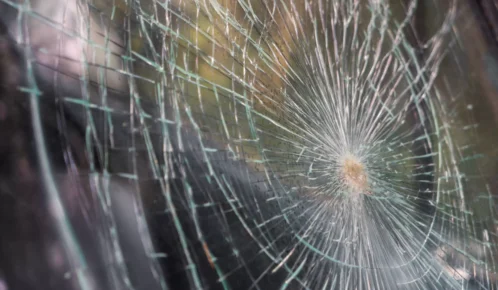Car accidents can result in various injuries, ranging from minor bruises to severe trauma. Just as the severity of the injuries can vary, so too can their impact. Understanding what constitutes an injury in a car accident claim is crucial for victims seeking compensation. In Illinois, personal injury laws govern car accidents, outlining the types of injuries eligible for compensation and the legal procedures involved. A car accident lawyer can help victims review their case to determine whether they have a claim against a liable party.
Table of Contents

If you were hurt in a car accident, don’t shoulder the burden of the financial consequences. Call Ankin Law in Chicago to hold the at-fault party accountable for your losses. 312-600-0000.
Illinois Laws Regarding Car Accident Injuries
Car accident claims are governed similarly to other personal injury claims in Chicago. Illinois laws regarding car accident injuries are designed to protect the rights of victims and ensure they receive fair compensation for their injuries and losses. Understanding these laws is essential for navigating the legal process effectively and maximizing your chances of securing fair compensation.
Illinois Uses a Fault-Based System
Illinois follows a fault-based system for car accidents, meaning the party at fault for the accident is responsible for compensating the injured party for his or her damages. This system allows injured victims to seek compensation from the negligent party’s insurance company through a personal injury claim. Fault can be determined by reviewing the evidence present in an accident report or at the scene. Often, the at-fault party is guilty of intoxicated, reckless, or distracted driving.
There Is a Statute of Limitations for Car Accidents Cases
In Illinois, there is a statute of limitations that sets a time limit for filing a car accident injury claim. Generally, the statute of limitations for car accident injuries in Illinois is two years from the date of the accident. Failing to file a claim within this time frame may result in the loss of the right to seek compensation.
Although most car accident claims will be governed by the statute of limitations, some cases allow for exceptions to this rule. Special cases where exceptions apply include those involving incapacitated victims, minors, or defendants guilty of fraud or fleeing the state.
Illinois Uses Modified Comparative Negligence
Illinois follows a modified comparative negligence rule, which means if the injured party is found partially at fault for the accident, his or her compensation will be reduced in proportion to his or her percentage of fault. However, if the injured party is determined to be more than 50% at fault for the accident, he or she may be barred from recovering any compensation.
Drivers Have Minimum Insurance Requirements
Illinois law requires all drivers to carry liability insurance with minimum coverage limits of $25,000 for bodily injury per person, $50,000 for bodily injury per accident, and $20,000 for property damage per accident. These minimum coverage limits ensure that injured victims have access to compensation for their injuries and property damage.
Pedestrians and Cyclists Have Rights in Accident Cases
Illinois law protects the rights of pedestrians and cyclists who are injured in person-car accidents. Drivers are required to exercise due care and caution when sharing the road with pedestrians and cyclists, and they may be held liable for injuries caused by their negligence.
Understanding Illinois laws regarding car accident injuries is crucial for protecting your rights and pursuing fair compensation if you’ve been injured in a car accident. Consulting with a knowledgeable car accident lawyer can help you navigate the legal process and advocate for your best interests.
What Constitutes an Injury in an Illinois Car Accident Claim?
Car accident injuries can vary widely in severity and lifelong impact, depending on factors such as the speed of the vehicles involved, the type of collision, and the use of safety equipment like seat belts and airbags. Some of the most common car accident injuries include:
Whiplash
Whiplash is a soft tissue injury that occurs when the head and neck are suddenly jerked backward and then forward, causing strain to the muscles and ligaments in the neck. It’s one of the most common injuries in rear-end collisions.
Head Injuries
Head injuries sustained in car accidents vary from mild concussions to traumatic brain injuries (TBIs), often caused by direct impact with the steering wheel, dashboard, or side window. Symptoms may include headaches, dizziness, confusion, and loss of consciousness. These injuries can have long-term effects on cognitive function and may require extensive medical treatment and rehabilitation.
Cuts and Lacerations
Broken glass, loose objects, and metal debris inside the vehicle can cause cuts and lacerations to the skin. Depending on the severity, these injuries may require stitches or surgery to repair. Deeper lacerations can even leave victims facing limited mobility and disfigurement.
Fractures and Broken Bones
The force of impact in a car accident can cause fractures and broken bones in various parts of the body, including the arms, legs, ribs, and pelvis. These injuries may require immobilization with casts or surgical intervention for proper healing.
Back and Spinal Cord Injuries
Car accidents often result in herniated discs, spinal fractures, and spinal cord injuries, leading to chronic pain, paralysis, and diminished mobility. Paralysis can manifest as paraplegia, affecting the lower body, or quadriplegia, which impacts both the upper and lower body. These injuries can have lasting effects, necessitating prolonged medical treatment and rehabilitation. Victims may face physical and emotional challenges as they strive to regain function and quality of life after such traumatic events.
Internal Injuries
Blunt force trauma from a car accident can cause internal injuries such as organ damage, internal bleeding, and abdominal injuries. Internal injuries may not be immediately apparent and can worsen over time if left untreated.
Soft Tissue Injuries
Soft tissue injuries include sprains, strains, and bruises to muscles, tendons, and ligaments. These injuries can cause pain, swelling, and limited mobility, impacting the victim’s ability to perform daily activities.
Psychological Injuries
Car accidents can lead to psychological injuries such as post-traumatic stress disorder (PTSD), anxiety, and depression. Victims may experience flashbacks, nightmares, and emotional distress. These psychological effects can impact daily functioning and require therapy or counseling to address and overcome.
Burns
In car accidents involving fire or explosions, victims may suffer burns ranging from first-degree (mild) to third-degree (severe). Burn injuries can cause excruciating pain, extensive scarring, and long-term disfigurement, significantly impacting the victim’s quality of life and requiring extensive medical treatment.
Fatal Injuries
Car accidents may result in fatalities. Fatal injuries may occur instantly or as a result of complications during medical treatment. Surviving family members may pursue wrongful death claims to seek compensation for the loss of their loved one.
Seeking immediate medical attention after a car accident is crucial, even if injuries seem minor. Some injuries may not manifest symptoms right away, and early intervention can prevent complications and ensure proper treatment. If you’ve been injured in a car accident, consulting with a personal injury lawyer can help you understand your rights and pursue compensation for your injuries and losses.
Compensation for Car Accident Injuries
Victims of car accidents in Illinois have the right to seek compensation for their injuries and losses through various avenues. Compensation may cover:
- Medical Expenses: Compensation for past, current, and future medical bills related to injuries sustained in the accident, including hospital stays, surgeries, medications, rehabilitation, and therapy.
- Lost Wages: Reimbursement for income lost due to missed workdays, temporary or permanent disability, and reduced earning capacity resulting from the accident.
- Pain and Suffering:Damages awarded for physical pain, emotional distress, mental anguish, and loss of enjoyment of life experienced as a result of the accident and injuries.
- Loss of Consortium: Compensation for the loss of companionship, care, and support suffered by a spouse or family member due to the victim’s injuries or death in the accident.
- Punitive Damages: In cases involving egregious negligence or intentional wrongdoing, punitive damages may be awarded to punish the at-fault party and deter similar misconduct in the future.
- Funeral and Burial Expenses: In wrongful death cases, compensation may be available to cover funeral and burial expenses incurred by the surviving family members.
Car accidents can lead to physical, emotional, and financial burdens for victims and their families. Understanding what qualifies as an injury in a car accident claim and seeking proper compensation is essential for rebuilding your life after a traumatic event. By consulting a knowledgeable personal injury lawyer in Chicago and understanding your rights under Illinois law, you can pursue justice and obtain the compensation you need. If you’ve been injured in a car accident, don’t hesitate to contact us for a free consultation. Let Ankin Law help you navigate the legal process and fight for compensation.



